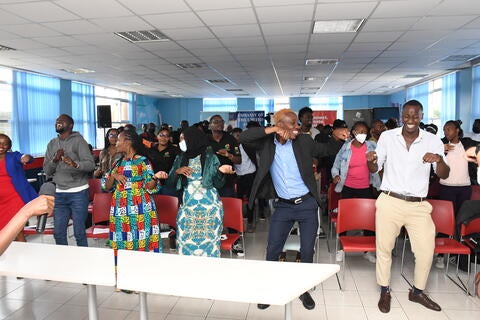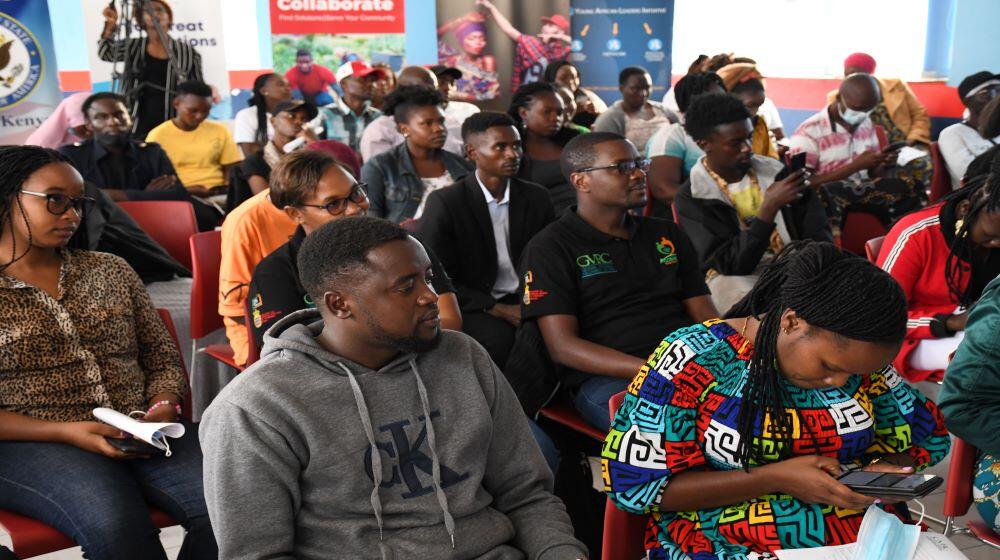With an internet penetration rate of 82%, Kenya has a strong online content consumption culture and active social media spaces. The Covid-19 pandemic served to reinforce the shift to online spaces due to restrictions on physical gatherings, with more young people embracing online platforms as outlets for self-expression, learning, and social interaction. With the Kenya general elections taking place on 9th August, the youth also embraced digital avenues for civic participation.
Young people face many barriers that limit their full potential, with the most pervasive being gender-based violence and harmful practices targeted at adolescent girls and young women. In the lead-up to the elections, UNFPA partnered with Healthcare Assistance Kenya (HAK 1195), the Gender Violence Recovery Centre, and the Collaborative Centre for Gender and Development to engage the youth in the prevention of technology-assisted gender-based violence, with a particular focus on rising incidences on social media platforms such as Facebook, Instagram, and Twitter. “In times of crisis such as political unrest, women and girls are at higher risk of gender-based violence. By sensitizing young people in locations identified as potential hotspots for this kind of unrest, UNFPA hopes to equip them with the necessary tools to identify, prevent and respond to acts such as abuse, harassment and hate speech in online spaces that are targeted at others based on their gender identity,” said UNFPA Humanitarian Specialist John Wafula.

Nakuru Public Library. Photo: Ben Akwah
Youth as agents of change
The rise in technology-assisted gender-based violence including cyberbullying, cyberstalking, doxxing, hate speech, and gendered disinformation is often a continuance of offline violence driven by negative social norms and inequalities. At a youth engagement forum held in Nakuru county, young people assembled were encouraged to embrace leadership in the development of innovations that will lead to sustainable solutions to such challenges.“It starts with making sure that we have the right kind of leadership and political goodwill to address illiteracy, poverty, and lack of agency among the youth,” said participant Robert.* Having experienced gender-based violence both online and offline due to his sexual orientation and gender identification, Robert works with other young people to address discriminatory social norms and gender stereotypes that drive such violence.
Participants at the Nakuru youth forum were trained on online safety as well as strategies for cultivating positive digital norms on social media platforms where a majority of the youth are present. Healthcare Assistance Kenya sensitized attendees on the national GBV helpline 1195 which is among avenues where survivors of gender-based violence can find help to cope with internet harm and abuse. The helpline offers psychosocial support and referrals and is free to access by dialing 1195.
UNFPA works with various actors in government and civil society to advance gender equality and the empowerment of women, girls, and young people and address the causes and consequences of gender-based violence, especially its effects on sexual and reproductive health. In emergency contexts, UNFPA advocates for the integration of gender-based violence risk mitigation and support for victims and survivors throughout the humanitarian response, with the goal of making all spaces safe and free from violence.


